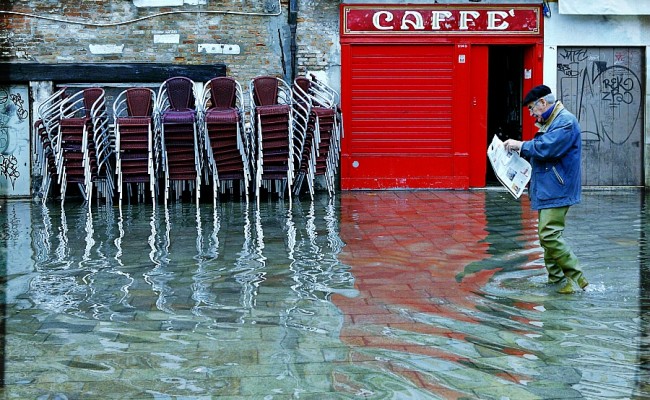In 2016, Overland published a series of articles debating the merits of Australian writers having a grounding in literary theory. ‘If we want to produce truly great novelists like Ferrante’, Emily McAvan argued, ‘a decent understanding of literary theory is imperative’. Responding, Alison Broinowski argued that, ‘The purpose of creative writing is above all to be creative, no matter what theoretical underpinning it has’. And jumping in at the end, Gabrielle Innes, a graduate of the University of Melbourne’s Master of Creative Writing, Publishing and Editing program, wondered if she might have been better off with more practical vocational guidance, to balance the theory she had learned.
These were three considered points of view on an important question: What role should theory play in our literature?
But there’s a bigger and more fundamental question that is usually elided when debates like this pop up. Maybe it’s easier for me, as someone whose current stake in Australian literature is largely limited to that of a reader’s (and, I suspect, as one of the few civilians who has read two of the three shortlisted Miles Franklin novels mentioned by McAvan in her opening paragraph), to put this question into words:
‘Why does no one care about Australian books?’ (Whatever their content – literary theory or no literary theory.)
Alright, some overstatement for effect there – the back and forth about literary theory proves that some people do care. Teachers and students of creative writing clearly do, and they’re probably also aware of the books and writers namechecked in this debate.
But this is a small and reflexive group and it tends to keep its conversations to itself. It can sustain civil discussions in Overland and on Radio National’s Books and Arts show, but it’s not a group that has been able to take these discussions into the kinds of spaces where broader social negotiations are taking place. Spaces like ABC Radio 702 and its interstate equivalents, or The Project on Channel 10, or other mainstream platforms – the kinds of platforms through which some thoughtful people might be nudged towards buying books.
Lucy Treloar’s Salt Creek is one of the Miles Franklin finalists McAvan references – a slowly boiling drama of sexual and racial tensions in late nineteenth-century South Australia. It’s pretty much un-put-downable, except for the bit where a toddler dies in the protagonist’s arms, and you have to stop reading and breathe.
Treloar is a graduate of RMIT’s Professional Writing and Editing program which, as McAvan told us, does not include literary theory. So the novel has a place in Overland’s debate. It also merits a place in broader debates about gender relations, Australia’s growing lack of ease with its postcolonial heritage, and why so many of us are still reading books by the Brontës and Gaskell in 2017. It is a novel that gives you plenty to talk about.
Another Miles Franklin finalist, Charlotte Wood’s The Natural Way of Things, wasn’t brought into the literary theory debate. It is a seething and furious critique of structural and cultural gender dynamics located in a parallel reality, and it reads like a smart YA dystopian novel for grown-ups. It’s confronting and uncompromising and it compels readers to assess their own relationship to gendered violence and rape culture. I don’t know how literary theory informed its production as a text, and I sort of care. I’m halfway interested. I’d read an article about it. But in the age of pussy-grabbing and #notallmen, The Natural Way of Things has a place in a much larger discourse. It’s the sort of cultural product that Waleed Aly and Steve Price should be arguing about on The Project. It should be read in every book club. It should be on the Year 9 syllabus, making Ray Hadley and Miranda Devine lose their fucking minds.
Should there be more literary theory in creative writing courses? Sure, why not. It can’t hurt, and even if you’re not interested you can more or less ignore it. But it’s a second order argument, because either way, Australian readers still won’t pay any attention.
When she had graduated, Innes had some practical questions for her tutor. ‘Should I start pitching? And if so, how and to which publications?’ Her creative writing course should have covered that ground. I’d add a few more skills to the wish list. ‘How to build a personal brand’ for example. ‘How to identify the people who might be audiences for my writing’. And then, ‘how to get their attention when everyone else is competing for it at the same time’. Those sorts of useful tricks. Anonymity is not what makes Elena Ferrante a great novelist, but it’s part of a compelling story that she tells about herself that adds another layer of interest and intrigue to her novels.
We all know that promotional budgets are tight in the publishing industry. But if Pan MacMillan and Allen & Unwin can’t spark interest in books as good as Salt Creek and The Natural Way of Things, local writers might have to think about what they can do themselves. In which case, maybe it’s marketing theory that creative writing courses should be incorporating – if we want a literary culture that’s outward looking, relevant and sustains itself with sales.
Could we have a debate about that?
Image: venice / Roberto Trombetta






